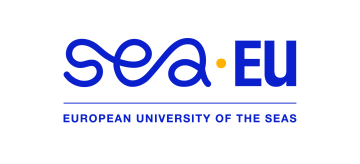Tourism and Stakeholders’ Well-being is one of the research areas of the Research Centre for Tourism, Sustainability and Well-being (CinTurs) (https://www.cinturs.pt/site/)
Framework: Worldwide, tourism growth has been heterogeneous, due to both global and national societal changes that led to modifications in tourists’ profiles and travel patterns, affecting host communities’ quality of life, as well as challenging and pressuring those who work in the sector. Regarding tourists, new markets are emerging as the result of new family typologies, population ageing, emergent economies, mutant values and lifestyles, and the spread of technological changes, which allow new ways of searching touristic products and services. Therefore, understanding the profiles, demand patterns, satisfaction levels and behaviours of these new tourists may help destinations to adjust their offer, increase their attraction potential, and minimize unwanted tourism impacts (e.g., overtourism and anti-tourism social movements).
Likewise, in the 21st century, tourists search for appealing and remarkable experiences where culture, art, heritage, tangible and intangible, and a close contact with the culture of local communities has gained major importance. With tourism, multiculturalism, as well as cosmopolitanism, increases, giving a new sense to places’ identities and communities’ lifestyles. Many destinations are becoming increasingly attractive to some of the new forms of mobility that somehow challenge the traditional definitions of tourism, including ‘residential tourism’, ‘lifestyle mobilities’, ‘lifestyle migration’. Thus, another challenging research topic is the study of the host communities’ attitudes and behaviours towards the tourism phenomena, i.e., residents’ well-being, since tourism can affect their lives, in a positive or negative manner.
Moreover, research should give attention to those working in the hospitality sector, trying to understand their employment and work conditions (namely the effects of seasonality and overwork), satisfaction levels, career expectations, gender discrimination, and distress. In other words, it is increasingly important to assess the occupational well-being levels of tourism workers to promote them, since these workers are the main point of contact with tourists, which may influence their experience.
Focus: This research area focuses on the identification of solutions that contribute to guaranteeing the well-being of the stakeholders (tourists, residents, and workers in the tourism industry), increasing social cohesion and better living conditions for all.
Alignment with the Sustainable Development Goals of the UN for 2030: Good health and well-being (goal 3).
Keywords: Tourists’ Well-being; Tourism and residents; Tourism and quality of life; Second home Tourism; Social Impacts of Tourism; Cultural Impacts of Tourism; Health Tourism; Sports and Tourism; Healthy Workplaces in Hospitality; Lifestyle Mobilities and Migration; Tourist Psychology; Tourism experiences; Residents’ Well-being; Senior Tourism
Bagheri, F., Guerreiro, M., Pinto, P. & Ghaderi, Z. (2023). From Tourist Experience to Satisfaction and Loyalty: Exploring the Role of a Sense of Well-Being. Journal of Travel Research. DOI: 10.1177/00472875231201509.
Ormerod, N., Parsons, D. and Kenyon, A. (2023). Addictive leisure: an evaluation of the morality-economic politics of balancing casino development with local gambling policy. Journal of Policy Research in Tourism, Leisure and Events. https://www.tandfonline.com/doi/full/10.1080/19407963.2023.2234943
Woosnam, K. M., & Ribeiro, M. A. (2023). Methodological and theoretical advancements in social impacts of tourism research. Journal of Sustainable Tourism, 31(2), 187-203. https://www.tandfonline.com/doi/full/10.1080/09669582.2022.2046011
Petruzzi, M. A., Marques, C., & Campos, A. C. (2022). Socio-cultural impacts of peer-to-peer accommodation on host communities. International Journal of Tourism Research, 25(1), 123–136. https://onlinelibrary.wiley.com/doi/10.1002/jtr.2555
Bender, A.C., Guerreiro, M., Sequeira, B.D. & Mendes, J. (2021). Hedonic experiences at heritage attractions: the visitor’s perspective. International Journal of Culture, Tourism and Hospitality Research, 15 (4), 1-14. https://www.emerald.com/insight/content/doi/10.1108/IJCTHR-12-2020-0297/full/html
